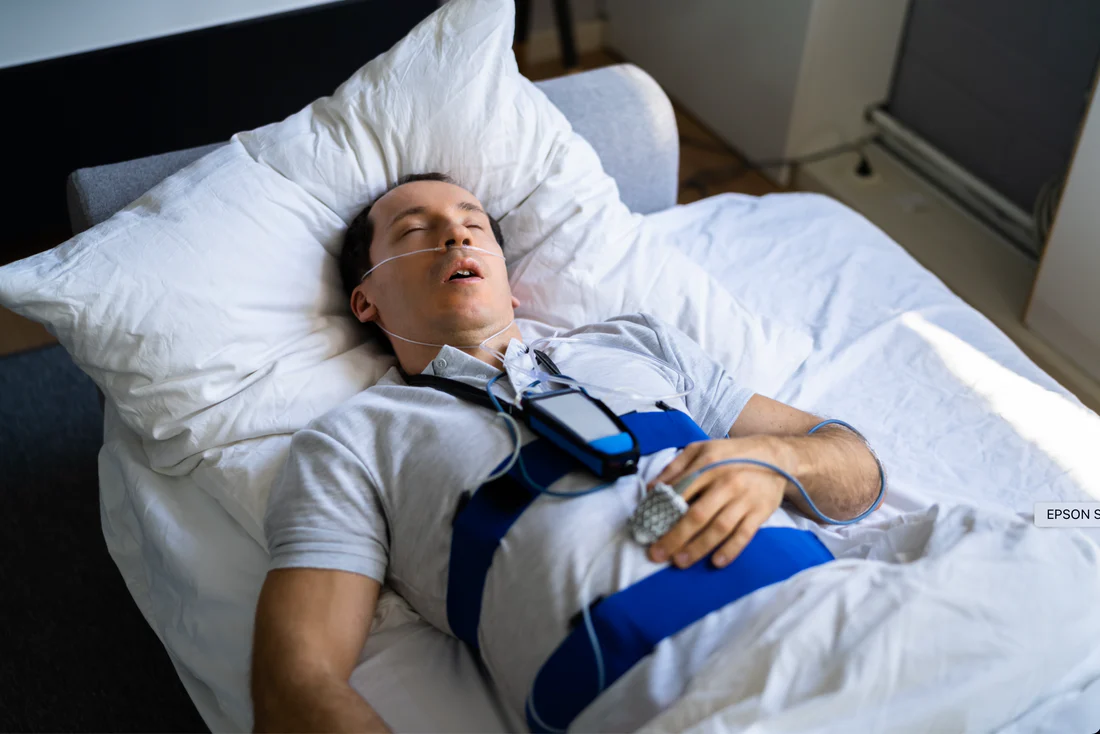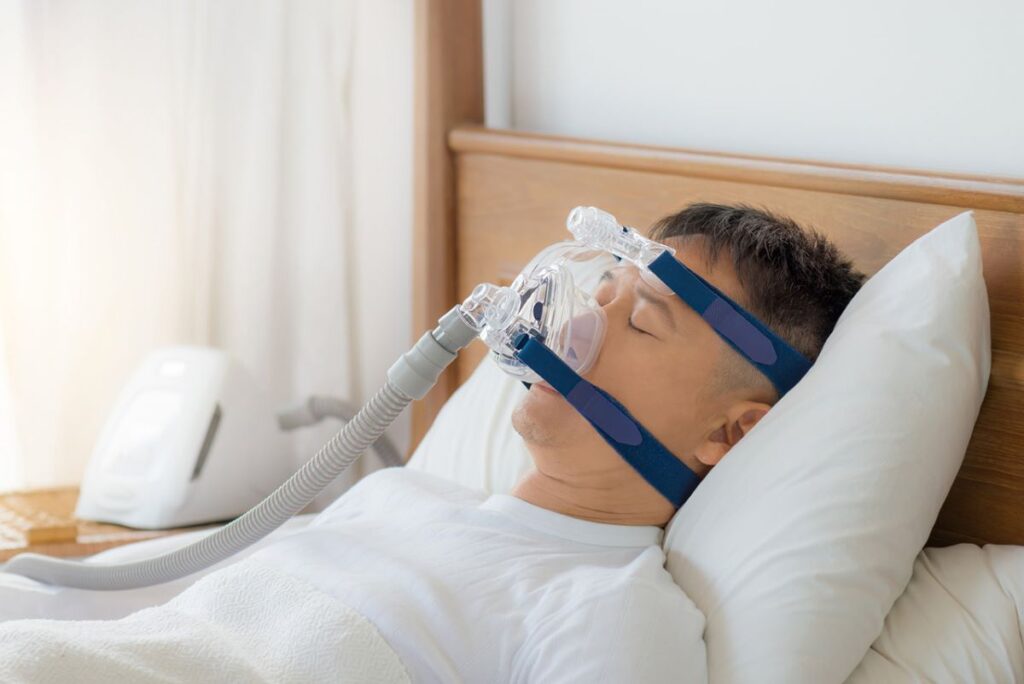Sleep Testing in Canberra: How to Prepare and Sleep Comfortably Overnight

What is Sleep Testing and Why is it Important in Canberra?
Sleep testing is a diagnostic procedure that monitors your body’s activity during sleep to identify sleep disorders. The test records vital parameters including breathing patterns, oxygen levels, heart rate, and body movements throughout the night.
Obstructive sleep apnoea stands as the most commonly diagnosed condition through sleep test Canberra services. This disorder causes repeated breathing interruptions during sleep when throat muscles relax and block the airway. Other conditions detected include:
- Central sleep apnoea
- Restless leg syndrome
- Periodic limb movement disorder
- Narcolepsy
- Insomnia-related breathing disturbances
Accurate sleep disorders diagnosis proves essential because untreated sleep conditions increase risks of cardiovascular disease, diabetes, workplace accidents, and reduced quality of life. Proper diagnosis enables clinicians to develop targeted treatment plans rather than addressing symptoms alone.
Canberra residents benefit from specialized facilities dedicated to sleep disorders diagnosis. Sleep Solutions Canberra provides comprehensive diagnostic services with experienced sleep physicians. The Respiratory Physiology Laboratory at Canberra Hospital offers public hospital-based testing for eligible patients. Both facilities employ qualified sleep technologists who ensure accurate data collection and patient comfort during overnight studies.
These clinics use advanced monitoring equipment and follow established protocols to deliver reliable results that guide treatment decisions for obstructive sleep apnoea Canberra patients and those with other sleep-related conditions.
How Do Sleep Tests Work and What Types Are Available?
There are two main types of sleep tests: in-lab studies and home-based monitoring.
In-Lab Sleep Study
An in-lab sleep study involves spending the night at a specialised facility where trained technicians attach electrodes and sensors to your scalp, chest, legs, and face. These devices continuously record brain activity, eye movements, muscle tension, heart rhythm, breathing patterns, and blood oxygen levels throughout the night. The comprehensive data captured allows specialists to identify complex sleep disorders and their severity.
Home Sleep Study
A home sleep study option provides a more convenient alternative for certain patients. You’ll visit the clinic to be fitted with portable monitoring equipment, then return home to sleep in your own bed whilst the device records essential breathing and oxygen data. The equipment typically includes nasal airflow sensors, chest bands to measure breathing effort, and a finger probe for oxygen saturation.
The choice between methods depends on several factors:
- Medical complexity: Patients with suspected complicated sleep disorders or multiple health conditions typically require in-lab studies
- Mobility concerns: Those unable to travel easily may benefit from home testing
- Suspected diagnosis: Straightforward obstructive sleep apnoea cases often qualify for home studies
- Previous test results: Inconclusive home tests may necessitate follow-up in-lab monitoring
Your referring doctor and the sleep clinic will determine which approach suits your specific situation best.
How Can Patients Prepare for an Overnight Sleep Test?
What should you bring and wear to your sleep study appointment? Preparing for sleep test success starts with wearing loose-fitting, comfortable clothing that allows easy sensor attachment and movement throughout the night.
Essential documents for sleep testing include:
- Medicare card or health care card
- Private health insurance details (if applicable)
- GP referral letter and correspondence
- Complete list of current medications
- Asylum Seeker card (if relevant)
Each Canberra clinic provides specific instructions about arrival times, typically requesting patients arrive 1-2 hours before their usual bedtime. What to wear sleep study appointments depends on the facility, though most recommend two-piece pyjamas or comfortable athletic wear that provides access to the chest, legs, and head for electrode placement. Patients should avoid applying lotions, oils, or hair products that might interfere with sensor adhesion. Bringing personal items like books, tablets, or toiletries helps recreate a familiar bedtime routine, though clinics typically provide basic amenities for overnight stays. Check out more about What Happens If Your Results Show Sleep Apnea?
What Should Patients Expect During an Overnight Sleep Study?
The overnight sleep study experience begins with a technician attaching electrodes and sensors to specific body locations, including your scalp, temples, chest, and legs. This setup typically takes 30-45 minutes and involves gentle adhesive patches that monitor your sleep without causing discomfort.
Key parameters monitored throughout the night include:
- Oxygen saturation levels in your blood
- Heart rate and rhythm variations
- Breathing patterns and airflow
- Body movements and position changes
- Brain wave activity during different sleep stages
Canberra clinics prioritise patient comfort by providing private rooms with adjustable lighting and temperature controls. Technicians remain available throughout the night to address concerns or adjust equipment if needed. The wires connecting sensors to monitoring equipment allow sufficient movement for natural sleeping positions, and patients can request assistance if they need to use the bathroom during the study.
How is Sleep Testing Accessed and Funded in Canberra?
Accessing sleep tests in Canberra begins with obtaining a referral from your general practitioner or medical specialist. Your GP assesses your symptoms and provides written documentation outlining your sleep concerns and medical history.
Once your referral reaches the sleep clinic, doctors review and triage the submission to determine urgency. Patients with severe symptoms or significant health risks receive priority scheduling, whilst others are placed on a waiting list based on clinical need. The clinic contacts you directly with an appointment date and pre-test instructions.
Medicare sleep study coverage makes testing accessible to eligible patients. Those holding a valid Medicare card or Asylum Seeker card can access sleep studies at public facilities like Canberra Hospital’s Respiratory Physiology Laboratory at no cost. Private health insurance may also cover services at private clinics such as Sleep Solutions Canberra, depending on your policy level and waiting periods.
What Happens After the Sleep Test and What Treatments May Follow?
Sleep test results are analysed by specialists in Canberra within days to weeks of your study. A respiratory physician or sleep specialist reviews the data collected overnight, examining oxygen levels, breathing interruptions, heart rate patterns, and sleep stages to identify specific disorders.
PAP therapy treatment is the most common intervention for obstructive sleep apnea. This therapy delivers continuous pressurised air through a mask worn during sleep, preventing airway collapse and maintaining open breathing passages throughout the night.
Treatment recommendations depend on the severity of your diagnosis:
- Mild cases may respond to lifestyle modifications like weight loss or positional therapy
- Moderate to severe sleep apnea typically requires PAP devices (CPAP, BiPAP, or APAP)
- Alternative treatments include oral appliances fitted by dentists or surgical options in specific cases
Your specialist will schedule a follow-up consultation to discuss findings and establish a personalised treatment plan tailored to your condition.

How Can Patients Ensure Comfort During Their Sleep Test?
Sleeping comfortably during sleep test sessions requires strategic preparation despite the sensors and wires. Wear loose-fitting pyjamas or comfortable clothing that allows electrodes to be positioned without restriction—avoid tight necklines or fitted sleeves that may interfere with monitoring equipment.
Practice relaxation techniques before arriving at the clinic:
- Deep breathing exercises to calm pre-test anxiety
- Progressive muscle relaxation starting from your toes upward
- Bring familiar items like your own pillow or sleep mask if permitted
Most Canberra sleep clinics maintain comfortable room temperatures and provide adjustable bedding. The sensors attach with gentle adhesive that won’t restrict movement significantly. Sleep technicians position wires carefully to allow natural sleep positions, whether you prefer sleeping on your back or side. These tips for overnight comfort help patients achieve representative sleep patterns essential for accurate diagnosis.
How Does Proper Preparation Lead to Better Sleep Testing Outcomes?
Thorough preparation directly impacts the accuracy of your sleep study results and the effectiveness of your subsequent treatment plan. When you arrive at your sleep testing appointment well-prepared—with the right clothing, documentation, and mindset—the clinical team can focus entirely on capturing quality data rather than addressing preventable issues.
The benefits of preparation for sleep testing in Canberra extend beyond the test itself. Patients who follow pre-test guidelines typically experience:
- More accurate diagnostic results due to reduced anxiety and better sleep quality
- Faster processing times when all required documentation arrives complete
- Smoother transitions to treatment when specialists have comprehensive medical histories
- Reduced need for repeat testing, saving time and healthcare resources
Your sleep study represents a significant step towards understanding and resolving sleep disorders that may be affecting your health, relationships, and daily performance. Whether you’re attending Sleep Solutions Canberra or the Respiratory Physiology Laboratory at Canberra Hospital, your preparation sets the foundation for successful diagnosis.
Ready to take control of your sleep health? Contact your GP today for a referral to a Canberra sleep testing facility. Bring your medication list, health cards, and any relevant medical correspondence to your first appointment. With proper preparation and the expertise of Canberra’s sleep specialists, you’re one step closer to restorative sleep and improved wellbeing.
Frequently Asked Questions (FAQs) About Sleep Testing in Canberra
A sleep test is a diagnostic procedure that records your breathing, oxygen levels, heart rate, and sleep stages to detect disorders such as obstructive sleep apnoea. You may need one if you snore loudly, feel excessively tired during the day, or experience interrupted sleep.
2. How do I book a sleep study in Canberra?
You can book a sleep study through your GP, a sleep specialist, or directly with local providers such as Sleep Solutions Canberra or the Respiratory Physiology Laboratory at Canberra Hospital. Many clinics allow online or phone bookings.
3. What’s the difference between a home sleep test and an in-lab study?
A home sleep test lets you monitor your sleep in your own bed using a portable device, ideal for diagnosing straightforward obstructive sleep apnoea cases. In contrast, an in-lab study takes place overnight at a clinic and records more complex data like brain waves and muscle activity.
4. Do I need a doctor’s referral for a sleep study in Canberra?
Public facilities such as Canberra Hospital generally require a GP referral. However, some private providers and pharmacies offer home sleep testing without a referral for eligible patients.
5. Is a sleep study covered by Medicare or private health insurance?
Yes. Medicare covers eligible sleep studies conducted at public hospitals or approved clinics. Private health insurance may also reimburse part or all of the cost, depending on your policy and the facility you choose.
6. What should I bring and wear for my overnight sleep study?
Wear loose, comfortable clothing like pyjamas or activewear, and bring your Medicare card, GP referral, a list of current medications, and personal items like a toothbrush or pillow. Avoid lotions or hair products before the test.
7. How long does it take to receive sleep study results in Canberra?
Most patients receive their sleep study results within 1–2 weeks. Some clinics offering home sleep testing provide preliminary reports within 48 hours of returning the monitoring equipment.
8. What happens if my sleep study shows obstructive sleep apnoea?
If diagnosed with sleep apnoea, your doctor will recommend a treatment plan that may include CPAP therapy, dental appliances, lifestyle changes, or in severe cases, surgery. Regular follow-ups ensure treatment remains effective.
9. Where can I get CPAP machines and sleep apnoea treatment in Canberra?
CPAP machines are available at local pharmacies, medical equipment suppliers, and sleep clinics throughout Canberra. These providers also offer mask fittings, machine setup, and ongoing support to help you adapt to treatment comfortably.